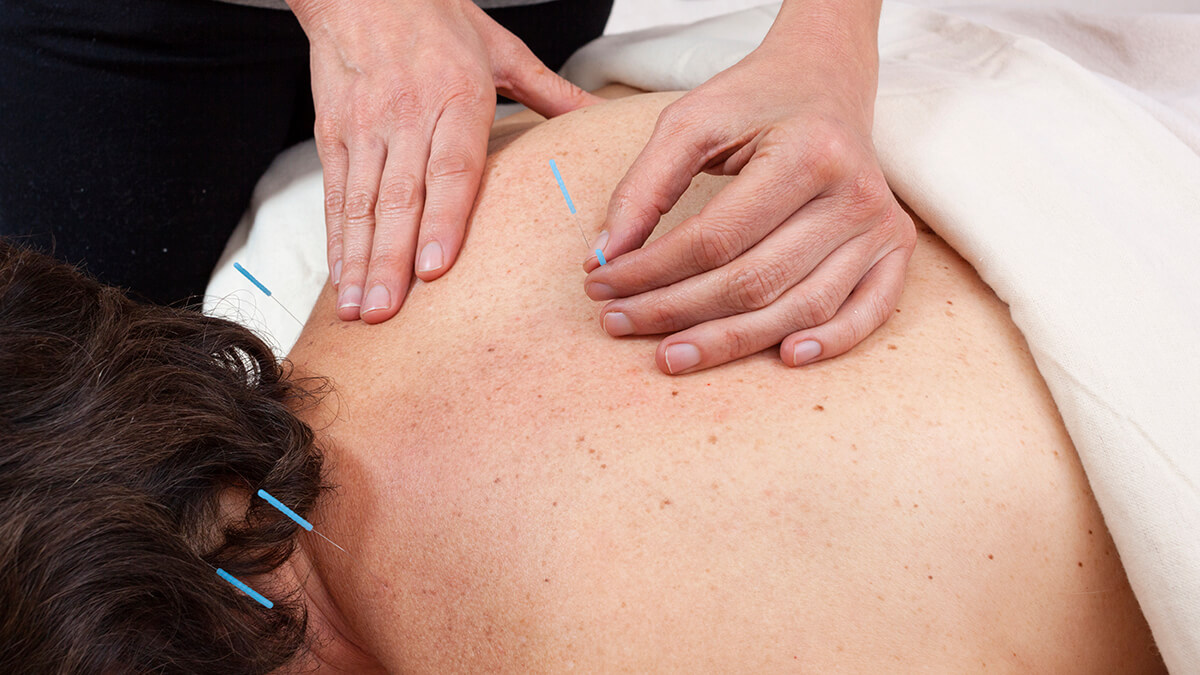Acupuncture
There are different types of acupuncture. Hilary is trained in TCM (Traditional Chinese Medicine), Five Element and Trigger Point Acupuncture. She specializes in Trigger Point Acupuncture, a technique based on the work of Dr. Janet Travell, to release taut muscle fibers and alleviate local tenderness or referred pain. While the insertion of very fine, sterilized, needles or the application of heat from moxa (mugwort ) along channels/meridians describes what one would witness in a typical acupuncture treatment, the philosophy of acupuncture, and the experience received from a treatment is multi-dimensional. Over 3,000 years old, acupuncture’s philosophy is based on the Yin/Yang ideology – the unity of opposites. The aim to balance contrasts is at the core of the art and science of acupuncture. The practice of acupuncture is based on our interrelatedness with nature. In ancient times the practitioner, not able to see how things moved within the body, solely relied on the observations of nature’s intelligence to sustain life energy (Qi). Then, in order to balance contrasting forces, practitioners warmed what was cold, cooled what was warm, built what was deficient, broke down what was in excess, circulated what was stagnant, etc. Each unique point, documented with a long history of trial and error, embodies a particular quality of Qi (life energy). Additionally, acupuncture points correlate to internal organs and systems of the body and their functions. Knowledge gained from the experience of an acupuncture treatment can lead a patient to an awareness that their body/mind/spirit have an intelligence that is based on balance and health. Questions and Answers How does acupuncture work? Acupuncture is based on the ancient Chinese theory of Qi (energy) flowing through discrete channels of the body, similar but not identical to the nervous and blood circulatory systems. The flow of Qi is assessed by palpation, pulse and tongue diagnosis, which are combined with signs and systems to identify imbalances. Acupuncture regulates the Qi by increasing it in areas where it is deficient and draining it where it is in excess. This regulation supports the healing process, restoring the body to a balanced state of health. Does it hurt? If correct stimulus of the needle is obtained, the patient could feel some cramping heaviness, distention, tingling, or electric sensation either around the needle or traveling up or down the affected meridian, or energy pathway. Some patients do not even notice when the needle is inserted or removed while others may feel a slight pinching sensation. The needles are usually left in for about 20 minutes and many patients fall asleep. How will I feel after acupuncture? Usually patients feel deeply relaxed both during and after acupuncture. Some experience immediate relief (total or partial) from their pain and other symptoms. Or the results may even be sensed a day or two after a treatment. To retain best results it is recommended not to drink alcohol and to avoid heavy labor or a strenuous workout after acupuncture. Are the needles clean? Acupuncturists use pre-sterilized needles that are packaged for single use and are disposed of as medical waste. How many treatments will I need? The number and frequency of treatments depend on the duration, severity, and nature of the condition. Initially, weekly office visits are recommended. Only one visit may be needed for an acute complaint. A series of 5 to 15 treatments may resolve chronic problems. Some degenerative problems often require many treatments over time. Acceptance of acupuncture as an alternative, drug-free therapy The World Health Organization (WHO) has approved acupuncture for more than 40 medical and psychological conditions. Some of them include: The National institute of Health (NIH) confirms that acupuncture is a useful alternative or supplemental therapy to conventional medical treatment for a long list of ailments including those listed above.
